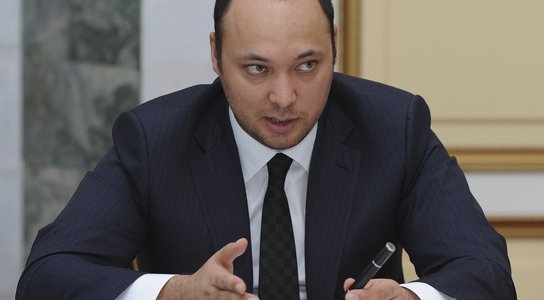Since the financial crisis, we have heard a lot about the revenue governments lose to tax avoidance and evasion, but what about the losses resulting from corruption of governments’ procurement processes? Around the world governments spend $9.5 trillion each year on public works, goods and services. It should be no surprise that fraudsters, and the corrupt, take advantage of this. According to research by the United Nations, corruption may amount to as much as 25% of government procurement budgets. The results of such fraud are harm to all of us in the form of lower quality infrastructure and services, higher prices, wasted tax dollars and decreased trust in government.
Criminals who are ripping off public budgets need to hide what they’re up to. Anonymously owned companies, or those whose owners are hidden, have proven to be a common facilitator of fraud in public procurement.
Today we’re adding new cases that demonstrate this problem to our online interactive map that tracks the abuse of anonymous company ownership around the world. They include:
- Defense contractors used a UAE-based anonymous company to overcharge the U.S. government in a $48 million scheme to supply food and water to troops in Afghanistan.
- American conspirators used sham companies from North Carolina, Nevada and Tennessee to steal more than $2 million from subcontractors that they tricked into fulfilling U.S. procurement contracts.
- Three senior Angolan officials hid their interests in companies that were awarded lucrative stakes in the impoverished country’s oil sector, despite the company’s lack of any previous experience in the industry.
- A Texas-based company paid $132 million to an anonymous Gibraltar company that it intended to use, in part, for bribes to win contacts to build a liquefied natural gas plant in Nigeria.
In order to address the issue of fraudsters using anonymous companies to rip off governments, governments should require that a company bidding on government contracts disclose the real people who own or control them (often called “beneficial owners”).
However, the collection of beneficial ownership information in procurement alone is not enough.
To increase transparency and accountability in procurement, open contracting must also be part of the solution—beneficial ownership information should be made public, while award and contract information should be made publicly available for free and in an open data format. In fact, statistics have shown a reduction in costs, fraud and corruption related to the contracting process when linked to open contracting.
In a positive step toward this end, starting in 2015, the U.S. Treasury Department must instruct the U.S. executive directors of each international financial institution (IFI), such as the World Bank and IMF, to seek to require that such institution collect, verify, and publish, beneficial ownership information for privately held companies, which receive U.S. funding through their IFI. It is critical that this important provision is robustly implemented.
In recognizing the high risks of corruption in government contracting and subsequent direct, negative impacts on the public, Global Witness will continue to shed light on cases involving anonymous companies in procurement. It is essential to demonstrate the need for legislation that mandates the collection, and publication, of beneficial ownership information in government contracting. This is critical because companies with hidden owners are one of the most important vehicles for bribery, money laundering, tax evasion, sanctions busting, drug trafficking, and other forms of crime and corruption around the world.
I will be presenting a few of these case studies to demonstrate the harm that anonymous companies are doing to you and me and to millions of other people around the world on the panel “Establishing Beneficial Ownership Registries: The Importance of Ending Anonymous Shell Companies in the Fight Against Corruption.” This panel is part of the Civil Society Forum at the World Bank Spring meetings on April 15 in Washington, DC from 2pm to 3:30pm. Other panelists include Transparency International-USA and the Stolen Asset Recovery Initative (StAR).


